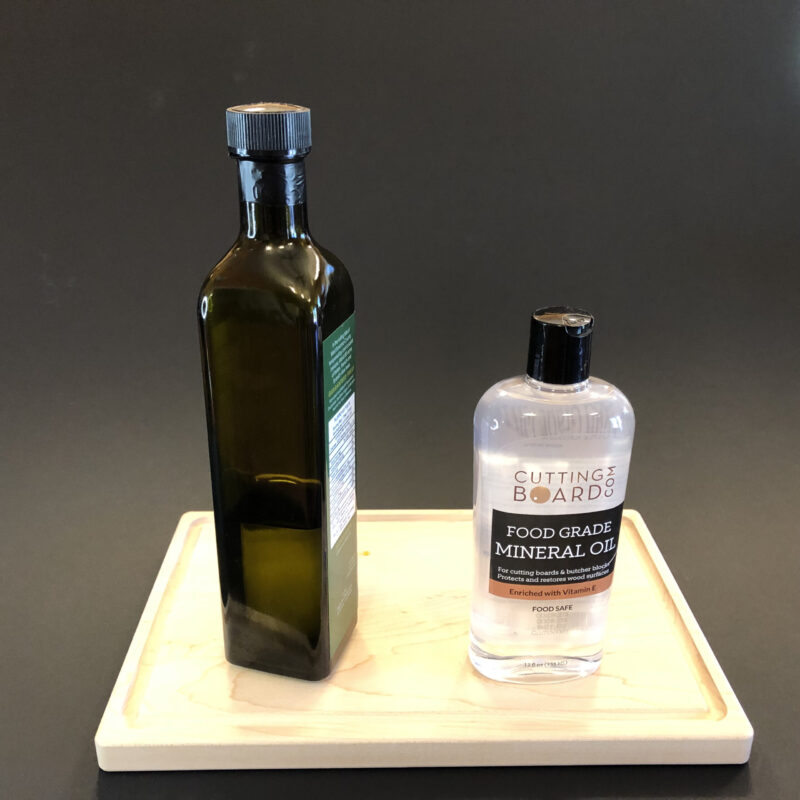 For treating wooden cutting boards, in our dietary intervention lab/kitchen, we used olive oil packaged in glass from a local supplier who has minimal plastic components in their oil-making mill.
For treating wooden cutting boards, in our dietary intervention lab/kitchen, we used olive oil packaged in glass from a local supplier who has minimal plastic components in their oil-making mill.
While some food sources suggest that vegetable-based oils will somehow turn rancid in contact with water, we found no evidence of this.
This ad-free article is made possible by the financial support of the
Center for Research on Environmental Chemicals in Humans: a 501(c)(3) non-profit.
Please consider making a tax-deductible donation for continued biomedical research.
We washed and scrubbed the boards frequently — and in hot water when meat was in contact — let them dry thoroughly and applied a modest coating of olive oil. No flavor transfer to food was observed.
Avoiding mineral oil
We avoided food-grade mineral oil for several reasons:
First because many plastic-based chemicals contaminate liquids of all sorts when they leach out into the contents. Plastic contact occurs in both the production and packaging stages.
Second, because mineral oils are a products of crude oil production, the origin of the oil is undetermined as it its precise chemical composition given unknown and variable production and packaging.
Both of those reasons violate our protocol to eliminate both known and unknown sources of contamination.